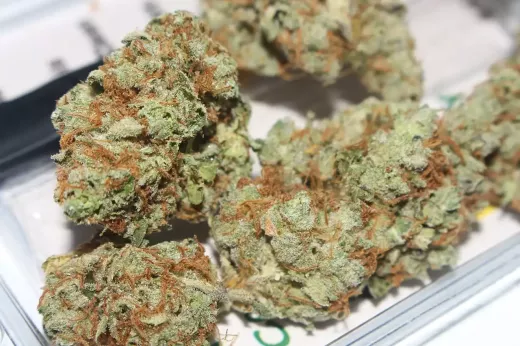The Origins of CBD: Ancient Remedies and Traditional Uses
CBD, or cannabidiol, has a lineage deeply rooted in ancient civilizations. Historical records indicate that CBD was utilized in ancient Chinese and Indian medicine, with references dating back thousands of years. In China, the use of cannabis for medicinal purposes can be traced to the legendary Emperor Shen Nung, who is believed to have documented the plant's therapeutic properties as early as 2737 BCE. Similarly, Ayurvedic practices in ancient India integrated cannabis extracts, including CBD, for its potential to balance bodily systems and promote overall wellness. These early applications lay the foundation for the enduring legacy of CBD as a revered natural remedy.
As societal attitudes towards cannabis evolved, CBD experienced a period of prohibition and stigmatization. However, with the gradual shift towards cannabis legalization in various parts of the world, there has been a resurgence of interest in CBD and its potential health benefits. The legalization of hemp-derived CBD in the United States with the passage of the 2018 Farm Bill marked a pivotal moment, opening doors for research and the development of CBD-infused products. This legal milestone has paved the way for a modern renaissance of CBD, sparking a wave of scientific inquiry and commercial innovation that continues to unfold today. The intersection of cultural acceptance and legislative reform has propelled CBD into the mainstream consciousness, positioning it as a symbol of wellness and vitality in the 21st century.
The Science Behind CBD: Understanding Its Mechanisms and Benefits
At the heart of CBD's transformative journey lies a wealth of scientific exploration into its mechanisms of action and potential therapeutic applications. CBD interacts with the endocannabinoid system, a complex network of receptors and neurotransmitters that plays a crucial role in regulating various physiological functions, including mood, pain perception, and immune response. Through its interactions with the endocannabinoid system, CBD exerts modulatory effects that contribute to its diverse range of potential benefits.
Research has unveiled a myriad of potential therapeutic properties associated with CBD, ranging from its analgesic and anti-inflammatory effects to its anxiolytic and neuroprotective qualities. As a result, CBD has garnered attention as a promising candidate for addressing conditions such as chronic pain, anxiety disorders, epilepsy, and neurodegenerative diseases. Furthermore, ongoing research continues to explore the potential of CBD in areas such as skincare, sleep support, and overall wellness enhancement, expanding the horizon of its applications and potential impact on human health.
CBD in Popular Culture: From Stigma to Acceptance
The cultural perception of CBD has undergone a remarkable transformation, evolving from a stigmatized substance to a revered wellness ally. In the not-so-distant past, CBD was often conflated with the psychoactive effects of THC, leading to misconceptions and apprehensions surrounding its use. However, as scientific understanding and public awareness have advanced, CBD has transcended its association with recreational cannabis and gained recognition as a non-intoxicating, natural compound with potential health-promoting properties.
This shift in perception has been mirrored in popular culture, where CBD has permeated various consumer markets, from health and wellness products to beauty and lifestyle offerings. Celebrities, athletes, and influencers have openly endorsed CBD-infused products, contributing to its mainstream visibility and acceptance. Moreover, the proliferation of CBD-centric events, publications, and social media content has further propelled its integration into contemporary lifestyles, cementing its status as a cultural phenomenon with enduring relevance.
The Evolution of CBD Products: From Tinctures to Topicals
The commercial landscape of CBD products has undergone a remarkable evolution, diversifying to accommodate a wide array of consumer preferences and needs. Traditionally associated with tinctures and oils, CBD has expanded its presence across multiple product categories, including capsules, edibles, beverages, topicals, and even pet supplements. This expansion reflects a dynamic market response to the growing demand for innovative and accessible CBD-infused options.
The emergence of CBD-infused topicals, such as creams, lotions, and balms, has resonated with individuals seeking localized relief and skincare solutions. Meanwhile, the availability of CBD edibles and beverages has offered consumers convenient and discreet ways to incorporate CBD into their daily routines. This diversification of product offerings underscores the adaptability of CBD within the consumer goods landscape, catering to an increasingly discerning audience seeking personalized approaches to wellness and self-care.
CBD Regulations and Market Trends
The regulatory framework surrounding CBD remains a complex and evolving terrain, influenced by a patchwork of legislation at the national, regional, and international levels. While some jurisdictions have embraced the legalization and commercialization of CBD products, others maintain stringent restrictions or ambiguous stances, creating a mosaic of regulatory environments that impact market accessibility and compliance. Navigating this intricate regulatory landscape requires vigilance and adaptability from industry stakeholders, as compliance with diverse legal requirements is essential for sustainable market participation.
Despite regulatory complexities, the CBD market has demonstrated resilience and growth, driven by consumer demand and industry innovation. Market trends indicate a steady expansion of CBD product offerings, with an emphasis on quality, transparency, and differentiation. The emergence of third-party testing, organic certification, and sustainable sourcing practices reflects an evolving ethos of accountability and integrity within the CBD marketplace, aligning with consumer expectations for safety, efficacy, and ethical stewardship.
Debunking Myths and Misconceptions About CBD
Amid the burgeoning interest in CBD, a multitude of myths and misconceptions have proliferated, underscoring the need for accurate information and nuanced discourse. One prevalent misconception pertains to the psychoactive properties of CBD, with some individuals erroneously associating it with the intoxicating effects of THC. Dispelling this myth is essential in fostering a clear understanding of CBD's non-intoxicating nature and its distinct pharmacological profile.
Another common myth revolves around the notion that all CBD products are created equal, disregarding critical factors such as product quality, purity, and transparency. Educating consumers about the significance of product integrity and informed purchasing decisions is pivotal in promoting a discerning and empowered CBD consumer base. By addressing these myths and misconceptions through evidence-based education and transparent communication, the industry can elevate public confidence in CBD and its potential contributions to holistic well-being.
CBD Research and Innovations: Exploring Future Possibilities
The landscape of CBD research continues to unfold, yielding new insights and potential breakthroughs that hold promise for the future. Ongoing studies exploring the therapeutic applications of CBD in areas such as pain management, mental health, and neurology represent a frontier of scientific inquiry that may shape clinical practices and public health strategies. Moreover, advancements in formulation technologies and delivery methods are fostering innovation in product development, enhancing bioavailability and customization to meet diverse consumer needs.
In parallel, the integration of CBD into interdisciplinary research initiatives, encompassing fields such as pharmacology, psychology, and nutrition, underscores the multifaceted potential of CBD as a catalyst for holistic wellness. As scientific understanding deepens and collaborative efforts drive innovation, the horizon of possibilities for CBD's role in promoting human health and resilience continues to expand, laying the groundwork for a future characterized by evidence-based utilization and informed integration within healthcare paradigms.
The Global Impact of CBD: Cultural and Economic Perspectives
The global proliferation of CBD has precipitated a significant impact on cultural narratives and economic landscapes, transcending geographical boundaries and societal contexts. Culturally, CBD has permeated diverse traditions and lifestyles, resonating with individuals seeking natural alternatives and integrative approaches to health. Its global resonance reflects a universal aspiration for holistic well-being, transcending linguistic, cultural, and generational divides to unite communities in pursuit of vitality and balance.
Economically, the burgeoning CBD industry has catalyzed job creation, investment opportunities, and market diversification, shaping local and global economies. From agricultural cultivation to product manufacturing and retail distribution, the CBD supply chain encompasses a spectrum of economic activities that contribute to employment, innovation, and trade. Furthermore, the potential for CBD to foster sustainable practices and resource utilization underscores its capacity to align economic growth with environmental stewardship, exemplifying a paradigm of responsible commerce and societal impact.
Conclusion: Embracing the Promise of CBD
The evolution of CBD through history encapsulates a narrative of resilience, adaptation, and transformation, reflecting both the enduring wisdom of ancient remedies and the boundless potential of modern science. From its origins in traditional healing practices to its contemporary prominence in global wellness movements, CBD embodies a convergence of tradition and innovation, offering a bridge between the wisdom of the past and the promise of the future. As we embrace the multifaceted contributions of CBD to individual well-being and societal flourishing, we embark on a collective journey towards a future enriched by the enduring promise of this extraordinary compound. Let us continue to honor its legacy, illuminate its potential, and nurture a world where the evolution of CBD continues to inspire, heal, and elevate the human experience.









